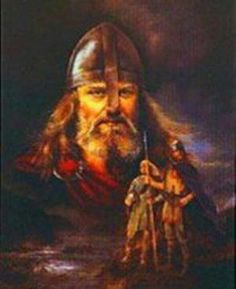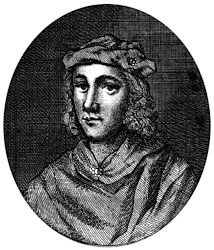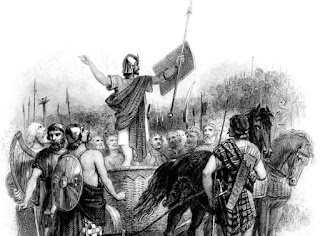Ystrat Clud
Ystrat Clud
Britons are the ancestors no one seems to have heard about. They were Christians, spoke Welsh, worshipped at Govan, and ruled from Carlisle to Glasgow for 600 years. They are the nearest thing we have to a 'native' people!
They called it Ystrat Clud - Strathclyde. Their church was at Govan, their hunting estate at Partick, their stronghold was Cadzow near Hamilton. They were the Welsh forefathers of today's Glaswegians. They were the Britons.
Of all the peoples who made up Scotland in the early historic period, the group who are probably least well. Known to the average Scot was the Britons. This is odd, as these are the people who were here when written history began, the nearest thing Scotland has to a “native” people.
When the Romans arrived in Britain, first in the 1st century BC, and then during their forays into Scotland in the 1st century AD, Britain was inhabited by Britons from south to north. The Romans called them Brittones.
The languages spoken throughout Britain, though varying no doubt in dialects, was the language that later evolved into Welsh, Cornish, and Breton. The Romans, of course, had a strong and sometimes violent impact on the native Britons after their colonisation.
In the case of the Britons who dwelt north of the Firth of Forth, their resistance to Roman rule led in time to their becoming different in language, culture and name from their southern fellows, and they emerged in time as the Picts,
In southern Scotland, between Hadrian's Wall and the Antonine Wall, Roman control was loose and always fitful. Though never really conquered by Rome, the Britons who dwelt between the walls traded and formed alliances with the Romans, and were exposed on many levels to the Romanised culture of their southern neighbours, and to the technology and customs of the Roman army.
The Britons' fortunes ebbed and flowed over the succeeding centuries. At the height of their power in the 10th-century kingdom of Strathclyde, they stamped their identity on Glasgow and a huge swathe of land sweeping south.
By this time the kings were British and had British names-Rhydderch, Dyfnwal, Owein. The care of their kingdom was Lanarkshire.
But this kingdom stretched much further south. Its southern border was at Penrith, and we might see it as the kingdom of the M74 and the M6. The kingdom was also called Cumbria ar Cumbraland, the land of the Cymry, the new name the Britons of the north took for themselves the same name as their southern Welsh compatriots had adopted. Indeed, compatriots is what Cymry means.
The kings of Cumbria ruled over many different peoples, not just Britons. The Angles of the now-collapsed kingdom of Bernicia, Gaels from the north and west, and Scandinavians, too, from York and from the Isles, lived in this kingdom. But the British language had a revival, and new settlements were named in the British language in re-conquered lands.
The saints of Strathclyde - Mungo (Kentigern) of Glasgow, Constantine of Govan, and Patrick of Dumbarton - were brought to churches in the kingdom's south. The kings of Cumbria may well have gained their power by guarding, on behalf of the dominant - Scandinavian sea lords, the routes of trade and raid on the Clyde and the Solway.
Certainly, the Cumbrian kings played a pivotal role in the centuries which followed. In time, they became clients of the Gaelic kings of Alba. Their last native king, Owein the Bald, fought alongside Mael Coluim II at the battle of Carham, when Scotland's border at the Tweed was gained. But soon Owein died, leaving no heirs.
Cumbria became a sub-kingdom of Alba, sometimes given by the Scottish king to his heir to rule. The Scottish kings lost southern Cumbria in the late 11th century, reclaiming parts of it briefly in the 12th, only to lose them again later, leaving the south-western border where it now stands.
And what of the Britons of Cumbria? How did their language, their culture, and their identity fare after their last native king died? Certainly, we know that Cumbria retained its identity. It was as ruler of Cumbria that the king-to-be, David 1, cut his teeth. As king, he addressed his subjects according to their differing backgrounds.
Cumbrians still stood out as a separate group. As late as the 13th century, the bishops of Glasgow were claiming that their diocese encompassed all the old kingdom of Cumbria. The language and culture of the Britons of Cumbria were fading, though.
Soon, it was only to be found in names - Lanark, Glasgow, Partick, Renfrew, Paisley, Carlisle - and among shepherds counting their sheep on the Southern Uplands. And now, most Scots are barely aware of the strong heritage they share with the Welsh... the heritage founded upon the Men of the North.













Comments
Post a Comment